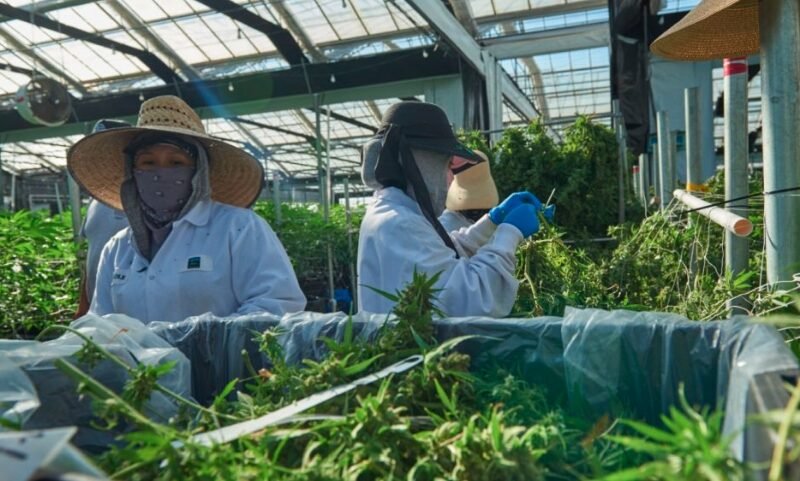The cannabis industry is one of the fastest-growing sectors in the US, with 19 states legalizing recreational use and 38 states allowing medical use. However, the working conditions and benefits for the employees in this industry are not always fair and consistent. That is why many workers are joining unions to demand better pay, protection, and representation.
Why Workers Want to Unionize
According to a report by the Economic Policy Institute (EPI), unionized cannabis workers can earn up to $8,690 more than their non-union, non-cannabis peers. They also enjoy benefits such as health care, paid leave, and fair scheduling. Unionization can also help workers of color, who have been disproportionately affected by the war on drugs, to access economic justice and opportunity.
Alex Suarez, a worker at Modern Cannabis dispensary in Chicago, Illinois, said that she and her co-workers voted to unionize in March 2022, after securing a contract that allows customers to tip them and guarantees annual raises, seniority rights, and 40 hours a week for full-time staff. “We’re trying to make these careers for the long term, not just one that is a turnover establishment,” she said. “I think the upswing in organization in this country right now is astonishing and we need to keep going over that energy.”

How Companies Resist Unionization
However, not all cannabis companies are supportive of unionization. Some have hired anti-union consultants and lawyers to discourage and intimidate workers from organizing. For example, Green Thumb Industries (GTI), one of the largest cannabis corporations in the US, faced allegations of union busting in 2018 and 2019, when workers at its facility in Rock Creek, Illinois, tried to form a union.
Tonya Townsend, a former worker at GTI, said that the company fought them “tooth and nail” for about a year, using “mental, physical, verbal, daily abuse” to prevent them from unionizing. The union campaign ultimately failed by a narrow margin of 26 to 30 votes. Townsend said that she was fired shortly after the election for speaking out against the company.
What Policy Makers Can Do
The EPI report suggested that policy makers can play a role in ensuring that the cannabis industry provides quality jobs for workers by encouraging union organizing and industry cooperation with labor peace agreements (LPAs). LPAs are contracts between companies and unions that protect the right of workers to unionize and prevent labor disputes that could disrupt the business operations. LPAs are already required in some states, such as New York, New Jersey, and California, for cannabis companies to obtain licenses.
Ademola Oyefeso, the legislative and political director of the United Food and Commercial Workers (UFCW), the largest cannabis workers union in the US, called on state and federal legislators to include worker standards in their cannabis legalization proposals. “Doing so will ensure that the thousands of hardworking people and families affect by failed policies benefit from legalization in the form of quality, sustainable jobs,” he said.
The cannabis industry is unionizing, and the stakes are high for both workers and employers. As the sector continues to grow and evolve, the need for fair and consistent labor practices will become more urgent and important.




